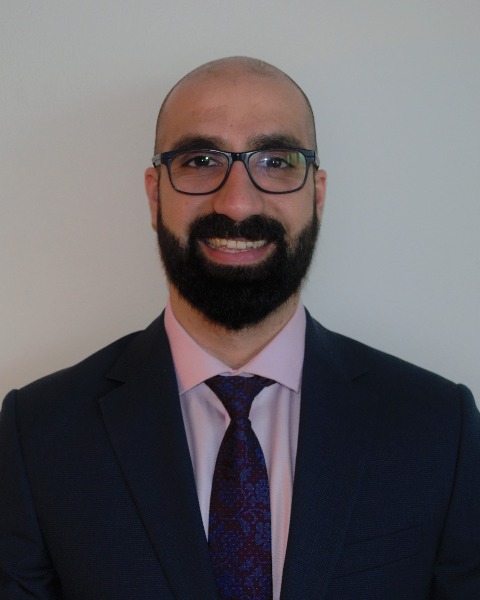Back
Poster Session B - Monday Morning
B0012 - Short- and Long-Term Outcomes of Necrotizing Pancreatitis After Endoscopic, Percutaneous and Surgical Management
Monday, October 24, 2022
10:00 AM – 12:00 PM ET
Location: Crown Ballroom

Yazan Abu Omar, MD
Cleveland Clinic Foundation
Cleveland, Ohio
Presenting Author(s)
Introduction: Pancreatic fluid collections (PFCs) are a common complication of necrotizing acute pancreatitis (NAP) and are a significant cause of morbidity and mortality. Multiple intervention approaches are utilized in a step-up fashion for the management of symptomatic PFC in patients with NAP. The aim of this study is to analyze the short- and long-term clinical outcomes in these patients treated endoscopically, percutaneously, or surgically.
Methods: This retrospective cohort study was conducted in a large tertiary center. Patients with NAP complicated by PFC were selected for possible inclusion. Short-term (< 90 days) and long-term ( >90days) clinical outcomes including mortality were compared between three groups; the first group was defined as patients who underwent endoscopic ultrasound-guided drainage alone or in combination with percutaneous drainage, and the second group are patients who underwent surgery only and the third group is patients who underwent percutaneous drainage alone.
Results: A total of 637 patients with NAP complicated by PFC on imaging were included, of those; 318 patients underwent an intervention for management of PFC from 2009 to 2019 with a median follow-up time of 17 months. Group 1 had 229 patients, group 2 had 30 patients and group 3 had 59 patients. Patients in groups 2 and 3 had longer hospital stays (18 and 19 days, respectively, p< 0.05), were more likely to be transferred to ICU (33% and 24%, respectively, p< 0.05) and had severe pancreatitis at the time of presentation (57% and 59%, respectively, p< 0.05). Patients in group 1 were more likely to present with recurrent episodes of AP (74%, p< 0.05). Alcoholic pancreatitis was the most common etiology overall and in group 1 39%, p< 0.05. The infected collection was the most common indication for drainage overall, and in group 3 (64%, p< 0.05). Transfer to ICU was lower in group 1 (14%, p< 0.05). 90-day mortality was lower in group 1 with 5.2% (P< 0.05). No difference was noted in long-term complications between the different groups.
Discussion: Endoscopic management alone or in combination with percutaneous drainage of symptomatic PFC in patients with necrotizing acute pancreatitis leads to a shorter hospital stay, and lower mortality when compared to percutaneous drainage alone or surgery. There was no difference in the long-term complications including chronic pancreatitis, EPI, new-onset DM, and chronic abdominal pain across these groups. A multidisciplinary approach is recommended in NAP.
Methods: This retrospective cohort study was conducted in a large tertiary center. Patients with NAP complicated by PFC were selected for possible inclusion. Short-term (< 90 days) and long-term ( >90days) clinical outcomes including mortality were compared between three groups; the first group was defined as patients who underwent endoscopic ultrasound-guided drainage alone or in combination with percutaneous drainage, and the second group are patients who underwent surgery only and the third group is patients who underwent percutaneous drainage alone.
Results: A total of 637 patients with NAP complicated by PFC on imaging were included, of those; 318 patients underwent an intervention for management of PFC from 2009 to 2019 with a median follow-up time of 17 months. Group 1 had 229 patients, group 2 had 30 patients and group 3 had 59 patients. Patients in groups 2 and 3 had longer hospital stays (18 and 19 days, respectively, p< 0.05), were more likely to be transferred to ICU (33% and 24%, respectively, p< 0.05) and had severe pancreatitis at the time of presentation (57% and 59%, respectively, p< 0.05). Patients in group 1 were more likely to present with recurrent episodes of AP (74%, p< 0.05). Alcoholic pancreatitis was the most common etiology overall and in group 1 39%, p< 0.05. The infected collection was the most common indication for drainage overall, and in group 3 (64%, p< 0.05). Transfer to ICU was lower in group 1 (14%, p< 0.05). 90-day mortality was lower in group 1 with 5.2% (P< 0.05). No difference was noted in long-term complications between the different groups.
Discussion: Endoscopic management alone or in combination with percutaneous drainage of symptomatic PFC in patients with necrotizing acute pancreatitis leads to a shorter hospital stay, and lower mortality when compared to percutaneous drainage alone or surgery. There was no difference in the long-term complications including chronic pancreatitis, EPI, new-onset DM, and chronic abdominal pain across these groups. A multidisciplinary approach is recommended in NAP.

